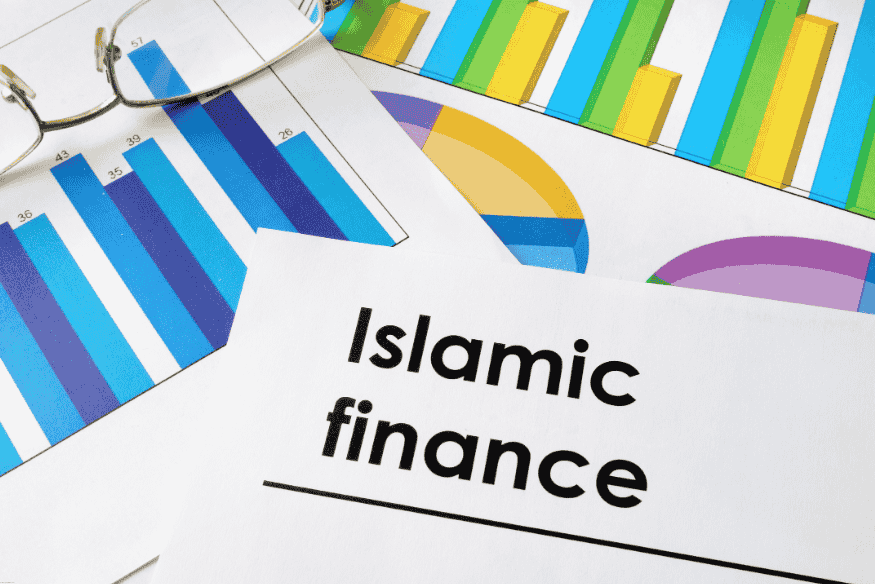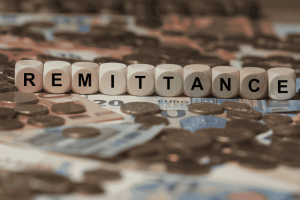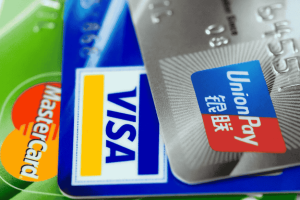In recent years, Sharia-compliant investing has become one of the fastest-growing sectors in Asia’s financial markets. As more Muslim and non-Muslim investors seek ethical, transparent, and socially responsible ways to grow their wealth, Islamic finance has evolved from a niche practice into a mainstream investment approach.
Guided by Islamic principles and overseen by Sharia boards, this form of investing excludes industries such as alcohol, gambling, weapons, and interest-based financial institutions while emphasizing risk-sharing, asset-backing, and fairness in transactions.
Asia—home to over 60% of the world’s Muslim population—has naturally become the epicenter of this growth. From Malaysia’s robust Islamic finance ecosystem to Indonesia’s expanding halal capital market and the rising interest in countries like Pakistan, Singapore, and Brunei, Sharia-compliant investments now offer diverse opportunities for retail and institutional investors alike.
The increasing integration of technology, fintech platforms, and robo-advisory solutions further enhances accessibility for younger, digital-native investors.
Beyond religious adherence, Sharia-compliant investing also aligns closely with global ESG (Environmental, Social, and Governance) principles. Both frameworks share a commitment to ethical conduct, transparency, and social responsibility. This parallel has drawn international attention, positioning Islamic finance as a credible alternative for those seeking both moral and financial value in their portfolios.
This article explores the foundations, opportunities, and challenges of Sharia-compliant investing across Asia, covering its guiding principles, key financial products, regulatory landscape, and future outlook. Whether you are an observant Muslim investor or simply value ethical investing, understanding how Islamic finance works in Asia can open the door to diversified, sustainable, and faith-aligned financial growth.

The Core Principles of Sharia-Compliant Investing
At its foundation, Sharia-compliant investing operates under Islamic law (Sharia), which prohibits certain types of financial activities and emphasizes equity, justice, and shared prosperity. The most significant principle is the ban on riba—interest or usury—deemed exploitative and unjust. Instead of earning interest, Islamic investments rely on profit-sharing structures like mudarabah (partnership) and musharakah (joint venture).
Another fundamental rule is the prohibition of gharar (excessive uncertainty) and maysir (gambling or speculation). Transactions must be based on tangible assets, ensuring real economic activity rather than speculative trading. This means derivatives, futures, and short-selling—common in conventional finance—are generally avoided.
Sharia-compliant investments are also guided by ethical filters. Companies involved in alcohol, tobacco, adult entertainment, weapons, or interest-based financial services are excluded. This screening process creates portfolios rooted in socially responsible and sustainable practices.
By emphasizing fairness and shared risk, Sharia-compliant finance encourages economic stability. Unlike debt-driven systems, it promotes equity-based participation where both investors and entrepreneurs share profits and losses. This principle has helped Islamic finance remain resilient during financial crises, making it increasingly attractive to broader audiences across Asia.
The Growth of Islamic Finance in Asia
Asia is now the global leader in Islamic finance, driven by strong government initiatives, supportive regulations, and an expanding investor base. Malaysia remains the undisputed hub, accounting for nearly one-third of global Islamic financial assets. Its sophisticated ecosystem includes Islamic banks, sukuk (Islamic bonds), and Sharia-compliant mutual funds.
Indonesia, the world’s most populous Muslim-majority country, has also made remarkable progress. The government’s “Sharia Economy Masterplan” aims to position Indonesia as a global leader by fostering innovation and integrating Sharia principles into mainstream financial products.
In Pakistan, Islamic banking assets have grown steadily, supported by national initiatives encouraging full conversion to Islamic financial systems. Meanwhile, Singapore and Hong Kong have become gateways for cross-border Islamic investments, attracting Middle Eastern capital into Asian markets.
The demand extends beyond Muslim-majority nations. In countries like Japan, South Korea, and India, institutional investors are exploring Islamic finance as part of their diversification strategies. The rise of fintech has made Sharia-compliant products more accessible, particularly through online investment platforms and mobile applications catering to retail investors.
Key Financial Instruments in Sharia-Compliant Investing
Sharia-compliant investing utilizes distinct instruments designed to comply with Islamic principles while providing competitive returns. Some of the most common include:
- Sukuk (Islamic Bonds): Instead of paying interest, sukuk represent ownership in an underlying asset, generating profit through asset-based returns.
- Islamic Equities: Stocks of companies that meet Sharia screening criteria—low debt levels and compliance with ethical business standards.
- Mudarabah Funds: Partnerships where one party provides capital and the other offers expertise, with profits shared according to pre-agreed ratios.
- Murabaha Contracts: Cost-plus financing agreements where assets are sold at a markup, allowing trade-based returns without interest.
- Takaful (Islamic Insurance): Cooperative insurance based on mutual assistance and shared responsibility.
Each instrument promotes transparency, risk-sharing, and asset-backing—principles that align with Sharia’s emphasis on ethical wealth creation. These products have not only gained traction among Muslims but also attracted socially conscious investors worldwide who value sustainable and principled financial practices.
Screening and Certification Process
Ensuring compliance is at the heart of Islamic investing. Every Sharia-compliant product undergoes a strict screening and certification process supervised by a Sharia board composed of Islamic scholars and financial experts.
The process typically includes:
- Business Activity Screening: Companies involved in prohibited industries (alcohol, gambling, interest-based finance, etc.) are excluded.
- Financial Ratio Screening: Firms must maintain low debt levels, limited interest income, and a balance of tangible assets.
- Continuous Monitoring: Regular audits ensure that compliance is maintained even after initial certification.
Certification is usually granted by recognized authorities like Malaysia’s Sharia Advisory Council, Indonesia’s National Sharia Board (DSN-MUI), and Pakistan’s Shariah Governance Framework. This oversight reinforces investor confidence and market credibility.
With fintech growth, automated Sharia-screening tools are emerging, enabling faster, data-driven compliance checks for ETFs and robo-advisory platforms. Such innovations ensure transparency while expanding access to compliant investment opportunities.

Performance and Resilience of Sharia-Compliant Portfolios
One of the misconceptions about Sharia-compliant investing is that it compromises returns for ethics. However, evidence suggests otherwise. Many Islamic portfolios have demonstrated resilience, particularly during global financial downturns.
Because Sharia law prohibits excessive leverage and speculation, portfolios naturally avoid high-risk instruments that often trigger market crises. This conservative approach can result in lower volatility and more stable long-term performance.
For example, during the 2008 financial crisis and the 2020 pandemic-induced crash, Islamic indices such as the Dow Jones Islamic Market Index and FTSE Shariah Global Index outperformed their conventional counterparts. Their emphasis on tangible assets, moderate leverage, and ethical business practices contributed to stronger downside protection.
Moreover, the increasing overlap between Sharia-compliant investing and ESG standards has enhanced global appeal. Institutional investors seeking sustainability often find Islamic investments aligned with their ethical frameworks, further supporting their long-term performance prospects.
Regional Leaders in Sharia-Compliant Investment
Malaysia continues to dominate Asia’s Islamic finance landscape with a highly structured ecosystem supported by the government, central bank, and private institutions. The country’s capital market offers sukuk, Islamic REITs, ETFs, and mutual funds accessible to both domestic and international investors.
Indonesia follows closely, with its national Sharia index and government-backed sukuk gaining popularity among retail investors. The Indonesian Stock Exchange regularly collaborates with Sharia boards to enhance transparency and attract global capital.
Pakistan and Brunei are also expanding rapidly, integrating Islamic banking and capital markets. Singapore, while not a Muslim-majority country, has positioned itself as a bridge between Asia and the Middle East by hosting Islamic finance conferences and facilitating cross-border sukuk listings.
The diversity of these markets demonstrates Asia’s leadership in Islamic finance innovation, offering investors a range of compliant and high-performing investment avenues.
The Role of Fintech and Digital Platforms
Technology is revolutionizing Sharia-compliant investing across Asia. Digital platforms and robo-advisors are democratizing access to Islamic investments, making it easier for individuals to start investing with small amounts.
Apps like Wahed Invest, Sarwa, and Fasset provide diversified, halal-certified portfolios with transparent screening and automated rebalancing. Many fintech firms now integrate blockchain to enhance transaction transparency and trust.
In addition, AI-driven analytics help Sharia boards and fund managers conduct faster compliance checks, reducing human bias and improving efficiency. Mobile banking integrations also allow seamless management of Islamic investment accounts, enabling wider participation from millennials and digital-first investors.
These innovations are crucial for expanding financial inclusion, particularly in Southeast Asia, where millions of unbanked individuals can now access ethical financial solutions through mobile technology.
Challenges in Sharia-Compliant Investing
Despite impressive growth, challenges remain. Standardization is one of the biggest hurdles—different countries apply varying Sharia interpretations, making cross-border investments complex.
Another challenge lies in product diversification. While sukuk and equities are well-developed, other asset classes like Islamic ETFs and REITs remain limited in some markets. Investors seeking variety may find fewer options compared to conventional portfolios.
Moreover, education and awareness are key barriers. Many potential investors are unfamiliar with Islamic finance principles or assume it’s limited to religious contexts. Increased financial literacy and outreach are essential for sustainable growth.
Finally, liquidity management and the lack of uniform accounting standards can hinder institutional participation. Strengthening regional cooperation and creating harmonized Sharia governance frameworks will be critical in overcoming these challenges.
The Intersection of Sharia Investing and ESG
Sharia-compliant finance and ESG investing share a common ethical foundation. Both prioritize sustainability, transparency, and social welfare. As global investors seek purpose-driven portfolios, these two frameworks are increasingly converging.
For instance, Islamic funds already exclude harmful industries and prioritize equitable wealth distribution, aligning naturally with ESG values. Many institutions are now creating Sharia-ESG hybrid funds, allowing investors to achieve both faith-based and environmental impact goals.
This convergence strengthens the case for Islamic finance as a universal ethical investment model appealing to Muslims and non-Muslims alike. As ESG reporting becomes mandatory in more Asian markets, the alignment between the two will deepen, driving long-term growth and investor confidence.
The Future of Sharia-Compliant Investing in Asia
The future of Sharia-compliant investing in Asia looks bright. Increasing digitalization, regulatory support, and investor demand are driving rapid expansion. Governments in Malaysia, Indonesia, and Pakistan are promoting Islamic fintech innovation, while regional cooperation under organizations like the Islamic Development Bank (IsDB) is fostering cross-border growth.
In the coming decade, expect to see more Sharia-compliant ETFs, green sukuk, and AI-powered compliance tools entering the market. The integration of blockchain will further enhance transparency, making Islamic finance even more appealing to global investors.
As the region’s economies continue to grow, Asia’s leadership in ethical finance will not only shape the Muslim investment landscape but also influence global sustainable finance trends.
Education and Awareness in Sharia-Compliant Investing
One of the most crucial factors driving the long-term success of Sharia-compliant investing in Asia is investor education. While the Islamic finance industry has grown rapidly, many potential investors—both Muslims and non-Muslims—still lack a clear understanding of how Sharia-compliant products work or how they differ from conventional investments. This knowledge gap limits participation and slows market expansion.
Governments, financial institutions, and educational organizations are now taking proactive steps to address this. In Malaysia and Indonesia, national campaigns and Islamic finance training programs aim to improve financial literacy, while universities are introducing dedicated courses on Islamic economics and ethical investment principles.

Fintech platforms are also playing an important role by offering user-friendly tools, simplified dashboards, and multilingual content that help explain the fundamentals of halal investing to younger, tech-savvy users.
Increasing awareness not only empowers individuals to make informed investment decisions but also strengthens trust in Islamic financial systems. As investors become more knowledgeable about concepts like riba, mudarabah, and sukuk, they can better appreciate the ethical and practical advantages of these products. Ultimately, education acts as the foundation for sustainable growth, ensuring that Sharia-compliant investing continues to thrive as a credible and inclusive financial alternative across Asia.
Conclusion
Sharia-compliant investing represents the perfect blend of faith, ethics, and financial prudence. In Asia, it has evolved from a niche offering into a sophisticated ecosystem backed by innovation, transparency, and strong governance. By prohibiting interest, speculation, and unethical industries, it creates a framework that promotes shared prosperity and long-term economic stability.
As investors increasingly seek purpose-driven opportunities, Sharia-compliant finance provides a powerful model that aligns moral values with wealth creation. From Malaysia’s mature Islamic capital market to Indonesia’s digital fintech revolution, the region is redefining what ethical investing can achieve.
Looking ahead, the synergy between Islamic finance and modern technology will shape a new era of accessibility and growth. Whether driven by faith or a commitment to responsible investing, Sharia-compliant investing in Asia stands as a blueprint for sustainable wealth, inclusivity, and resilience in the global financial landscape.









